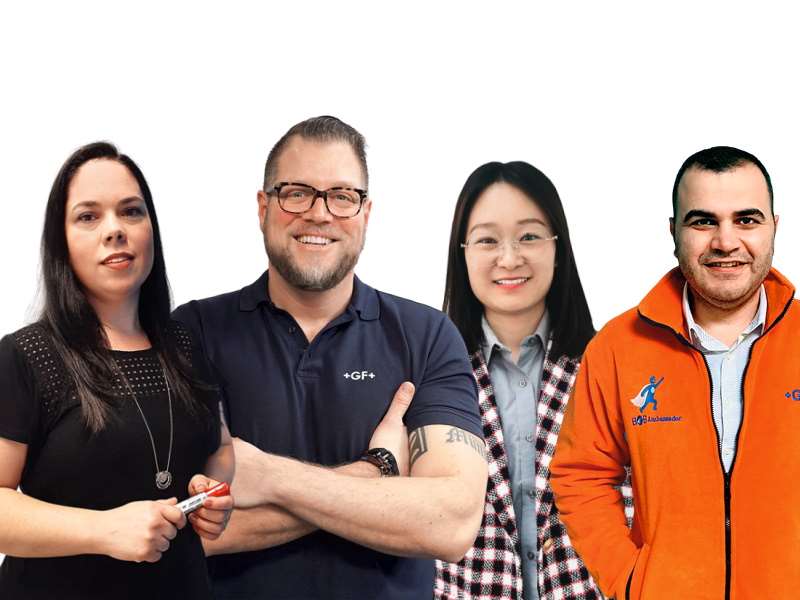Feeling safe to think big
A trust-based workplace is a key success factor in any organization. In this interview, Prof. John Weeks explains how companies can unleash their teams’ full potential.
Your work revolves around “psychological safety.” What is this?
 © private
© privateProf. John Weeks
Position: Professor of Leadership and Organizational Behavior at the International Institute for Management Development in Lausanne (Switzerland)
Background: Started his career as an engineer and lived on three continents before settling in Switzerland
Expert in: Leadership, change and company culture; he runs a leadership development program for GF, focused on GF’s new culture and values
Prof. John Weeks: In psychology and leadership studies, the term dates back to 1999, although the underlying concepts are much older. We distinguish four kinds: first of all, “learning safety,” or feeling safe enough to admit that there is something you are not doing as well as you could. The second one is “challenging safety”: is it safe to raise a different point of view in this team? There are connections between psychological safety in a team and trust, as they mutually increase each other.
And what are the other two?
Next is “being me safety”: is it okay to be my true self, or do I have to pretend to be somebody I am not? Will my peers, my boss, my reports, accept who I am and see my potential to grow? Finally, “collaborating safety”: are there repercussions for offering or asking for help?
Why does this matter in a business context?
Research shows that psychologically safe teams perform better, across cultures and regions of the world. If you scale that up to the entire organization, it’s a powerful advantage. When people are willing to learn, try new paths, stretch themselves to reach an even higher level of performance, imagine where they can get. If you want them to think big, having that safety is key. Also, if leaders do more “caring,” they can expect more “daring” from their teams.
How can you achieve that?
As a leader, part of your job is to build a caring and supportive environment, where people feel acknowledged and trusted. Another part is to challenge, inspire and dare your people to take risks and reach higher. If someone feels unsafe working with you and you know it, you’ll both behave defensively and will fail to take a step forward.
Is psychological safety a responsibility only for senior leaders?
Peers are the ones who play the biggest role in making you feel safe. However, it has to start at the top, otherwise it won’t happen across the rest of the organization. Senior leaders should model the behavior they wish to see in their teams. All employees can influence and shape the level of trust and safety in their part of the company.
How can they do so?
Here‘s a tip: Teams with high levels of psychological safety tend to have roughly balanced conversational turn-taking, which means that over the course of a month of meetings, everyone on the team spoke about the same amount. If that’s not the case, ask yourself what you need to do to balance it out. Do you need to talk less and listen more? Or do you need to speak more and let others hear your views and ideas?
What’s the advantage for employees?
The goal is to enable people to give their best, empower them to take calculated risks, explore and seek change. Helping them to meet their potential is what pushes everyone else forward.
Read the other spotlight articles here:
Trust promotes success
A central element at GF is having trust in the employees, customers, and partners. Three examples from the divisions – from Europe to Oceania – show how trust plays a key role in the success of projects.
The energy that brings us forward
This is what CEO Andreas Müller has to say about the current spotlight topic “Trust.”
What was the biggest risk you’ve ever taken?
In life, there are always situations in which you need to take a risk. Four GF employees talk about risks they’ve taken in their professional and private lives and how they eventually mastered them thanks to a bit of trust.
Creating a trust-based environment
Each and every one of us is necessary to create a world full of trust in which every employee can develop their potential. An infographic shows how this could work at GF.



